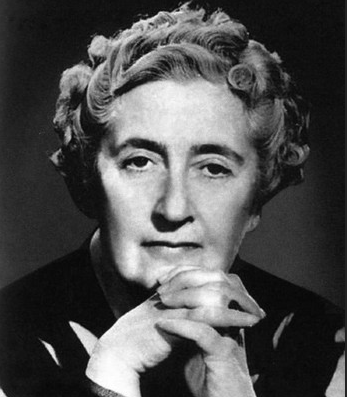The bowdlerizers won’t stop. The latest is HarperCollins, which has cut words like “black” and “native” out of Hercule Poirot and Miss Marple novels because they offend a mysterious group they call “modern audiences.” The majority of today’s readers aren’t “modern audiences” by that measure. 
If it were only a matter of replacing words that have come to be considered offensive with other words, it wouldn’t be so much of an issue. Old books are sometimes modernized to replace obsolescent words with more understandable ones, and this wouldn’t be much different. But at least part of the goal seems to be to eliminate any nastiness in the characters. HarperCollins has said, “Sections of dialogue uttered by often unsympathetic characters within the mysteries have also been cut.” The article mentions the updating of some lines by Mrs. Allerton in Death on the Nile. In the original, she says, “they come back and stare, and stare, and their eyes are simply disgusting, and so are their noses, and I don’t believe I really like children.” In the expurgated edition, she says only, “They come back and stare, and stare. And I don’t believe I really like children.” That’s not a matter of offensive words, but an offensive character.
Are HarperCollins’ sensitivity readers aware that every Agatha Christie mystery novel includes at least one murderer in its characters? Murder mysteries necessarily include nasty characters, and there need to be nasty ones besides the murderer in order to keep the reader guessing. In the first half of the twentieth century, it wasn’t unusual to judge people by their eyes and noses. Pretending otherwise does no good.
I’m genuinely puzzled why publishers keep doing this when it reliably gets them bad publicity. Big publishers are in business to make money, so there has to be an economic reason. Could it be internal pressure? Last year, some Amazon employees demanded that the company stop selling certain books online. Amazon didn’t cave in, but this is a different situation with different parties, and perhaps some employee group was able to impose its demands on HarperCollins. I don’t know; that’s purely a guess.
Once again, long copyright is a factor. The Mysterious Affair at Styles, published in 1920, is out of copyright, but most of Christie’s novels are still under copyright restrictions. No competitor can legally come out with an “Authentic Agatha” series to blow HarperCollins’ expurgated editions out of the water. As people turn to e-books, which often are guarded by DRM and can’t legally be resold, the used book market has shrunk.
The thought of e-books raises an interesting question. If you bought an e-book with the original edition, will it be auto-bowdlerized on your tablet when the new version comes out? I don’t know.
To be sure, Christie made some changes of her own, but they were her changes. The mystery known as And Then There Were None and Ten Little Indians was originally called Ten Little Niggers. She made a bad decision, realized it after people protested, and corrected it.
(I considered redacting the dirty word because I thought it might affect my search rank, but Wikipedia still uses it. Excluding offensive words from all mentions, including quotations, only increases their power to offend.)
The people of fifty or a hundred years ago were different from today’s people. Many used expressions or held views that most people consider unacceptable today. Fictional characters from that time reflect them. Altering them to make them acceptable to today’s society cheats the reader.